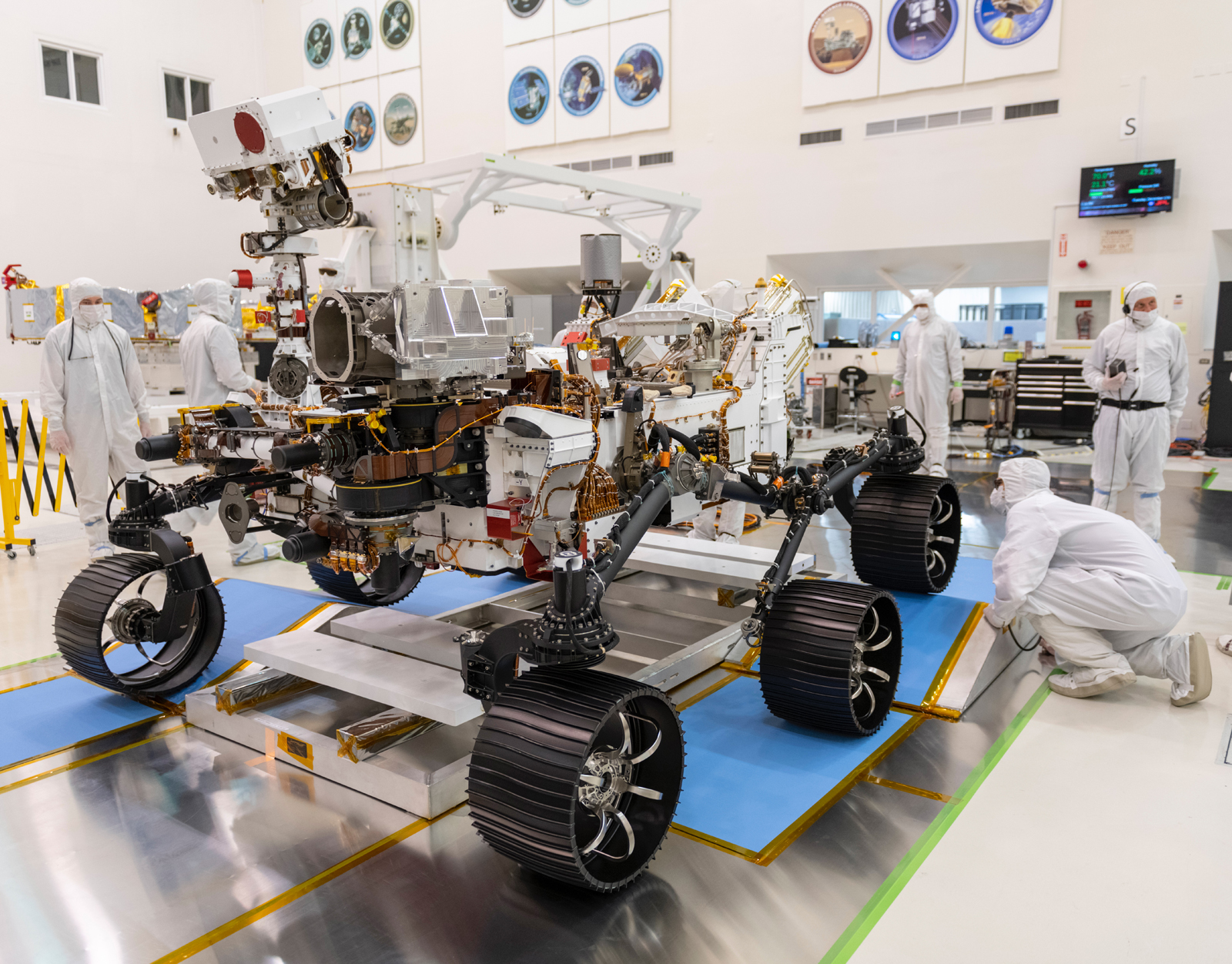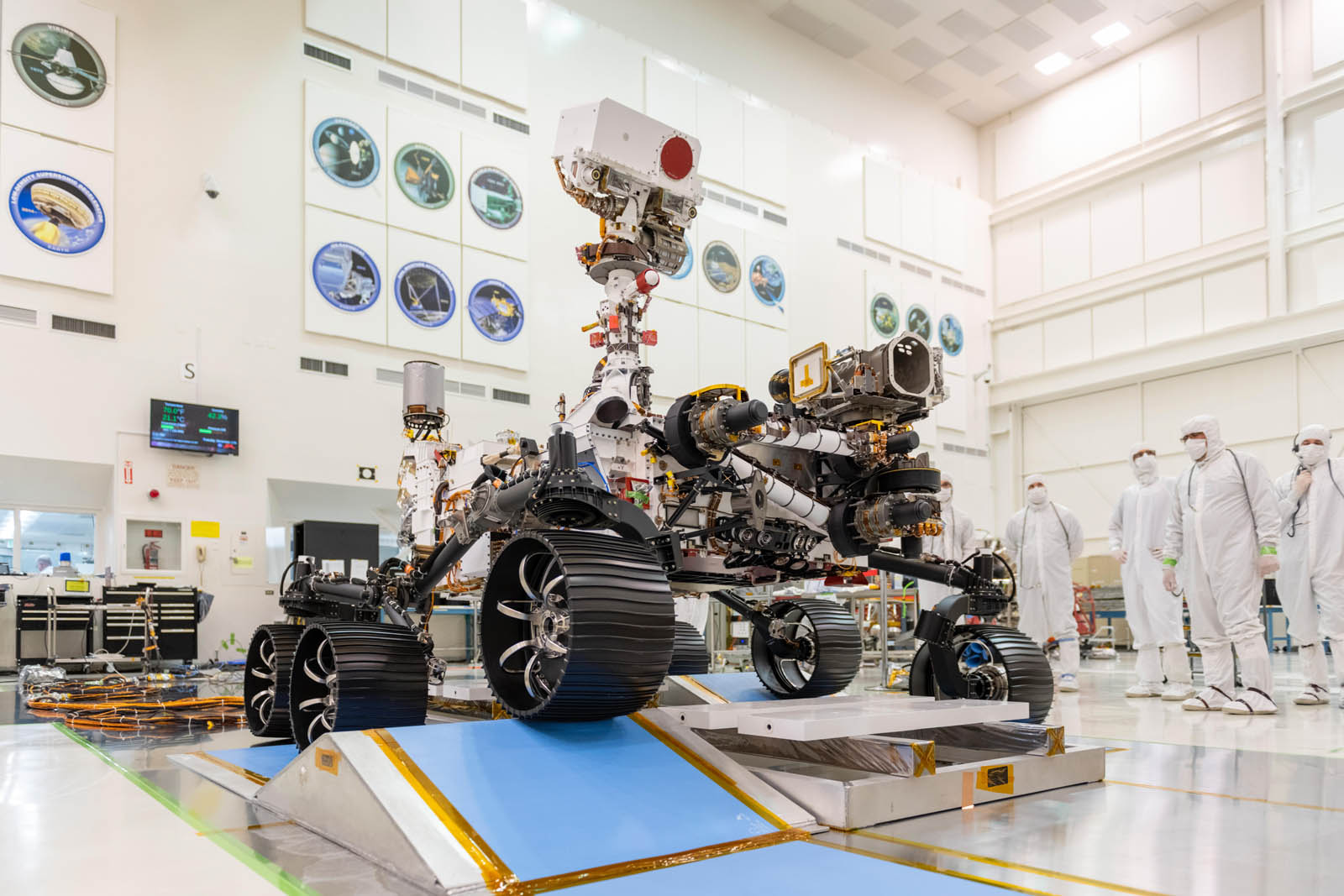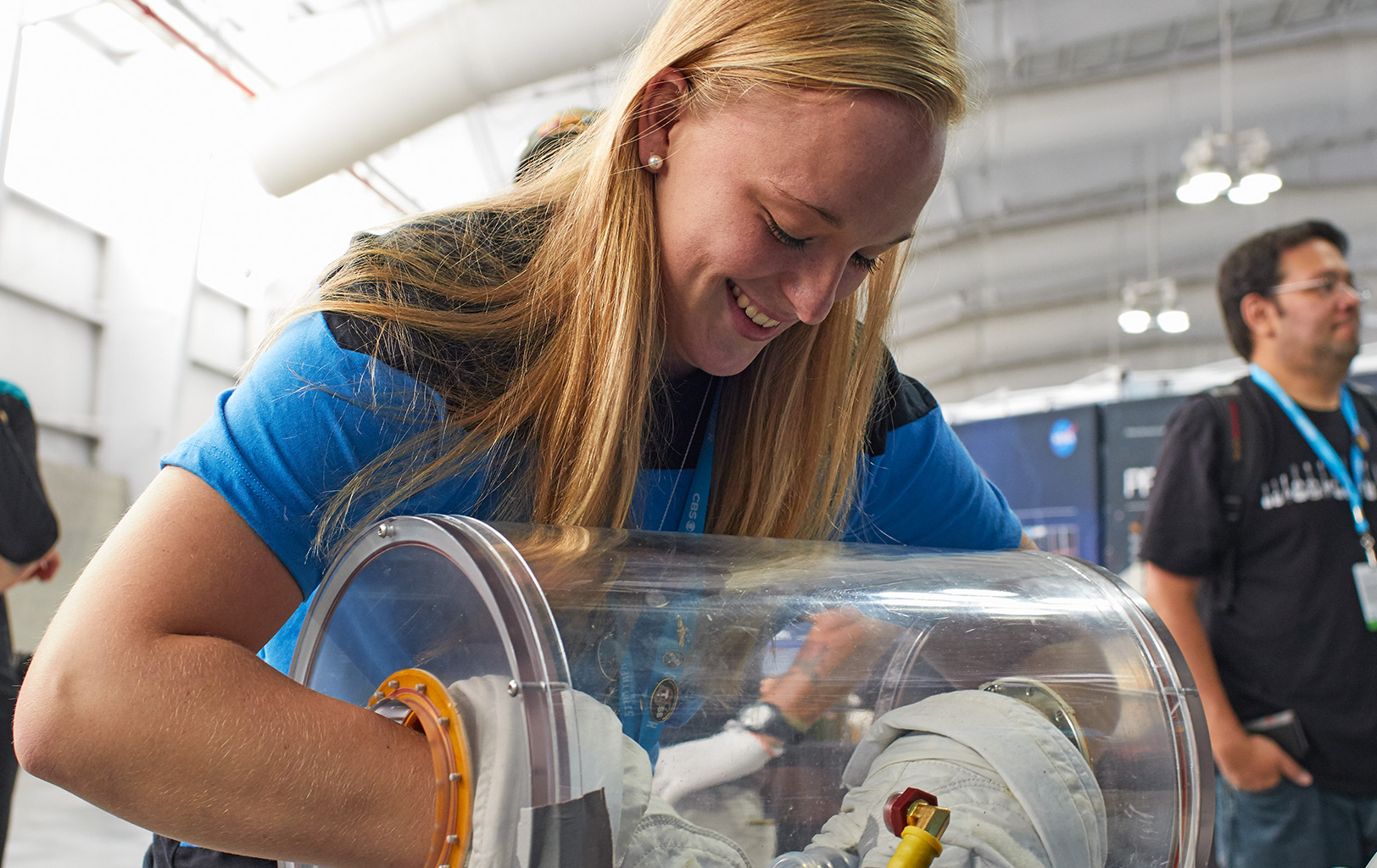Watch NASA's Mars 2020 Rover Ace Its 1st Test Drive (Video)
And it doesn't even have a license to drive!
NASA's Mars 2020 rover has taken its first test drive, representing a significant milestone in preparing to launch to the Red Planet next summer.
A new video from NASA's Jet Propulsion Laboratory (JPL) shows the rover rolling forward and backward, and turning around in a circle for the very first time on Dec. 17. The short-distance drive test took place in a clean room at JPL, where the rover was built. NASA engineers tested the rover's driving capabilities for more than ten hours, according to a statement from the space agency.
"Mars 2020 has earned its driver's license," Rich Rieber, the lead mobility systems engineer for Mars 2020, said in the statement. "The test unambiguously proved that the rover can operate under its own weight and demonstrated many of the autonomous-navigation functions for the first time. This is a major milestone for Mars 2020."
Video: Watch NASA's Mars 2020 Test Drive!
Related: NASA's Mars Rover 2020 Mission in Pictures

The Mars 2020 rover is scheduled to launch in July or August 2020. The mission will land on the Red Planet's Jezero Crater on Feb. 18, 2021, where it will begin its search for signs of habitable environments and evidence of past microbial life. The rover will also collect samples and study Mars' climate and geology, according to the statement.
"To fulfill the mission's ambitious science goals, we need the Mars 2020 rover to cover a lot of ground," Katie Stack Morgan, Mars 2020 deputy project scientist, said in the statement.
The rover has six wheels that are designed for added durability. During the drive test, the rover conquered small inclines. The next drive the Mars 2020 will take will be on the rugged Martian surface.
Get the Space.com Newsletter
Breaking space news, the latest updates on rocket launches, skywatching events and more!
Related: Watch NASA's Build Its Mars 2020 Rover Live Online

Mars 2020 is also equipped with high-resolution, wide-field-of-view color navigation cameras, an extra computer "brain" for processing images and making maps, and auto-navigation software. These features will allow the rover to drive an average of 650 feet (200 meters) per Martian day and make more driving decisions for itself than any of its predecessors, according to the statement.
"A rover needs to rove, and Mars 2020 did that yesterday [Dec. 17]," John McNamee, Mars 2020 project manager, said in the statement. "We can't wait to put some red Martian dirt under its wheels."
- Mars 2020: The Red Planet's Next Rover
- Life on Mars: Exploration & Evidence
- Photos: Ancient Mars Lake Could Have Supported Life
Follow Samantha Mathewson @Sam_Ashley13. Follow us on Twitter @Spacedotcom and on Facebook.

Join our Space Forums to keep talking space on the latest missions, night sky and more! And if you have a news tip, correction or comment, let us know at: community@space.com.

Samantha Mathewson joined Space.com as an intern in the summer of 2016. She received a B.A. in Journalism and Environmental Science at the University of New Haven, in Connecticut. Previously, her work has been published in Nature World News. When not writing or reading about science, Samantha enjoys traveling to new places and taking photos! You can follow her on Twitter @Sam_Ashley13.









